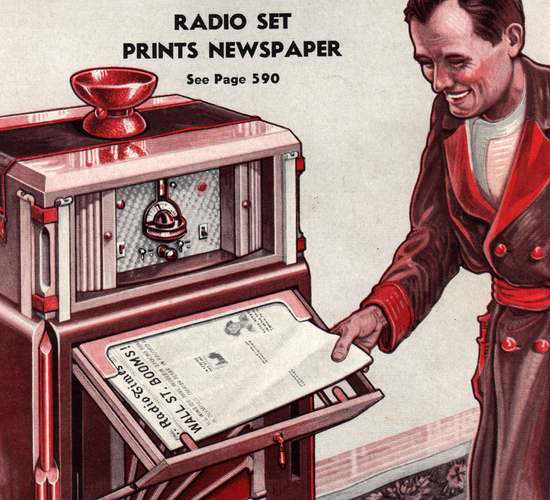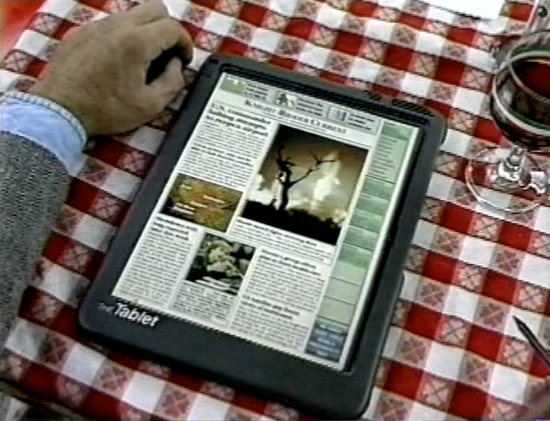The Newspaper of Tomorrow: 11 Predictions from Yesteryear

Newspapers printed by radio right in the home in 1934 (Source: Novak Archive)
Many of us here in the 21st century like to think of the newspaper as this static institution. We imagine that the newspaper was born many generations ago and until very recently, thrived without much competition. Of course this is wildly untrue. The role of the newspaper in any given community has always been in flux. And the form that the newspaper of the future would take has often been uncertain.
In the 1920s it was radio that was supposed to kill the newspaper. Then it was TV news. Then it was the Internet. The newspaper has evolved and adapted (remember when TV news killed the evening edition newspaper?) and will continue to evolve for many decades to come.
Visions of what newspapers might look like in the future have been varied throughout the 20th century. Sometimes they’ve taken the form of a piece of paper that you print at home, delivered via satellite or radio waves. Other times it’s a multimedia product that lives on your tablet or TV. Today we’re taking a look at just a few of the newspapers from the futures that never were.

Tablet newspaper of the future from a 1994 Knight Ridder concept video
Knight Ridder’s Newspaper Tablet (1994)
The newspaper tablet of the future was demonstrated in a 1994 concept video released by Knight Ridder. I found the video over at the Open Video Project back in 2007 and wrote a short blog post about it. I’m sure glad I didn’t make any snarky comments about how this whole tablet thing was never going to happen because as we know, the iPad would emerge less than three years later.
Back in 2011, a judge in the Apple vs. Samsung patent battle made note of this video as possible prior art which could invalidate some of Apple’s iPad patents. However, last year an appeals court found that the Knight Ridder concept tablet couldn’t be considered prior art and that Apple’s patent claims were significantly different enough....MUCH MORE